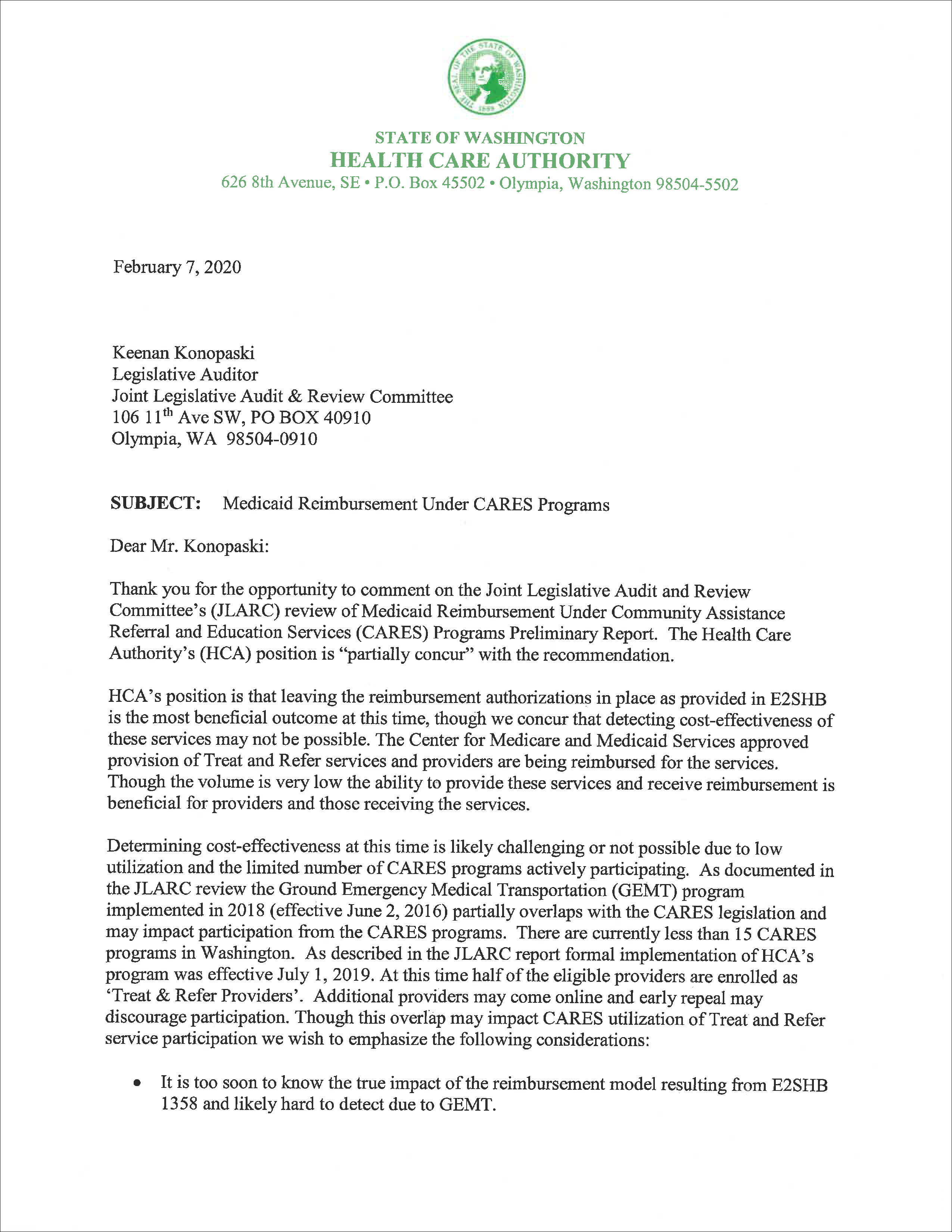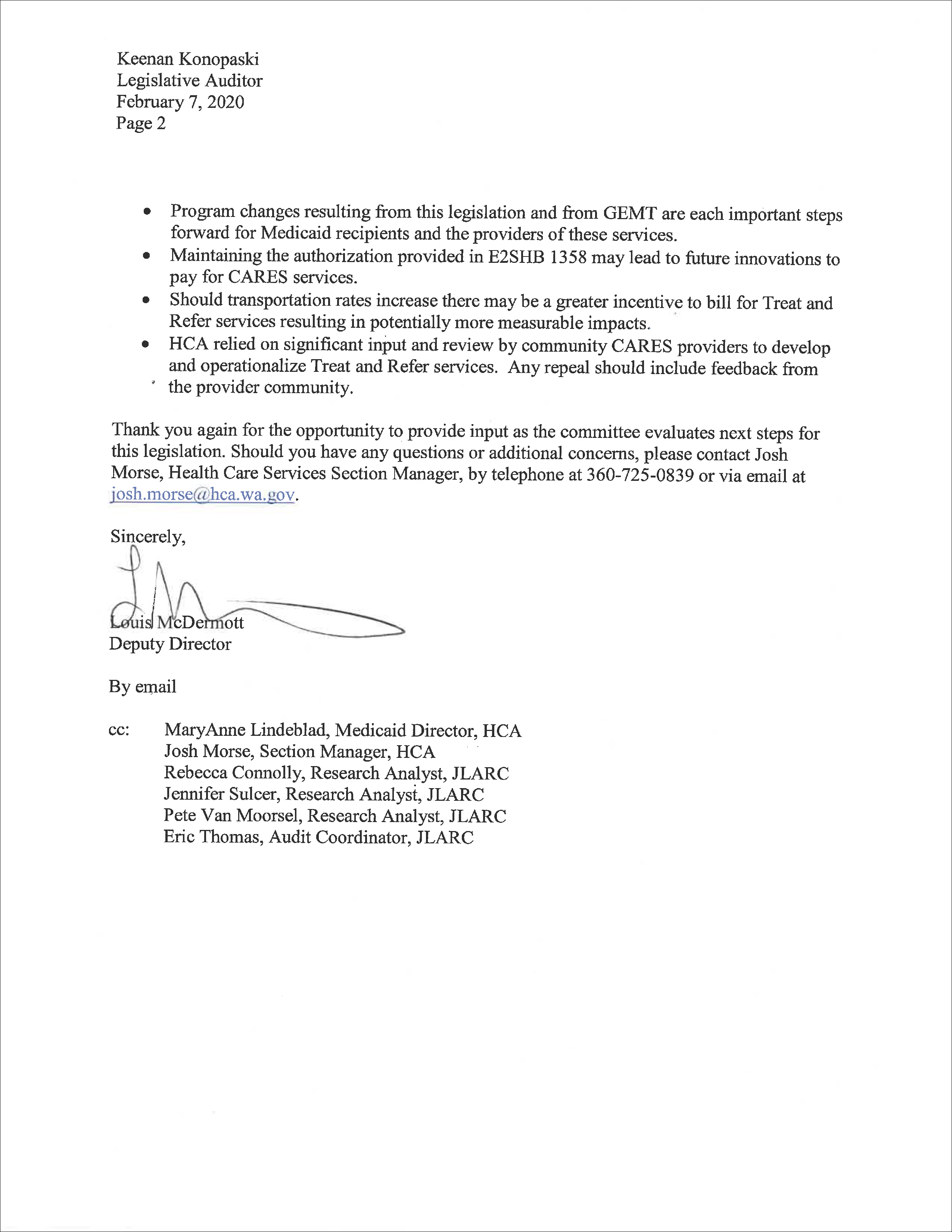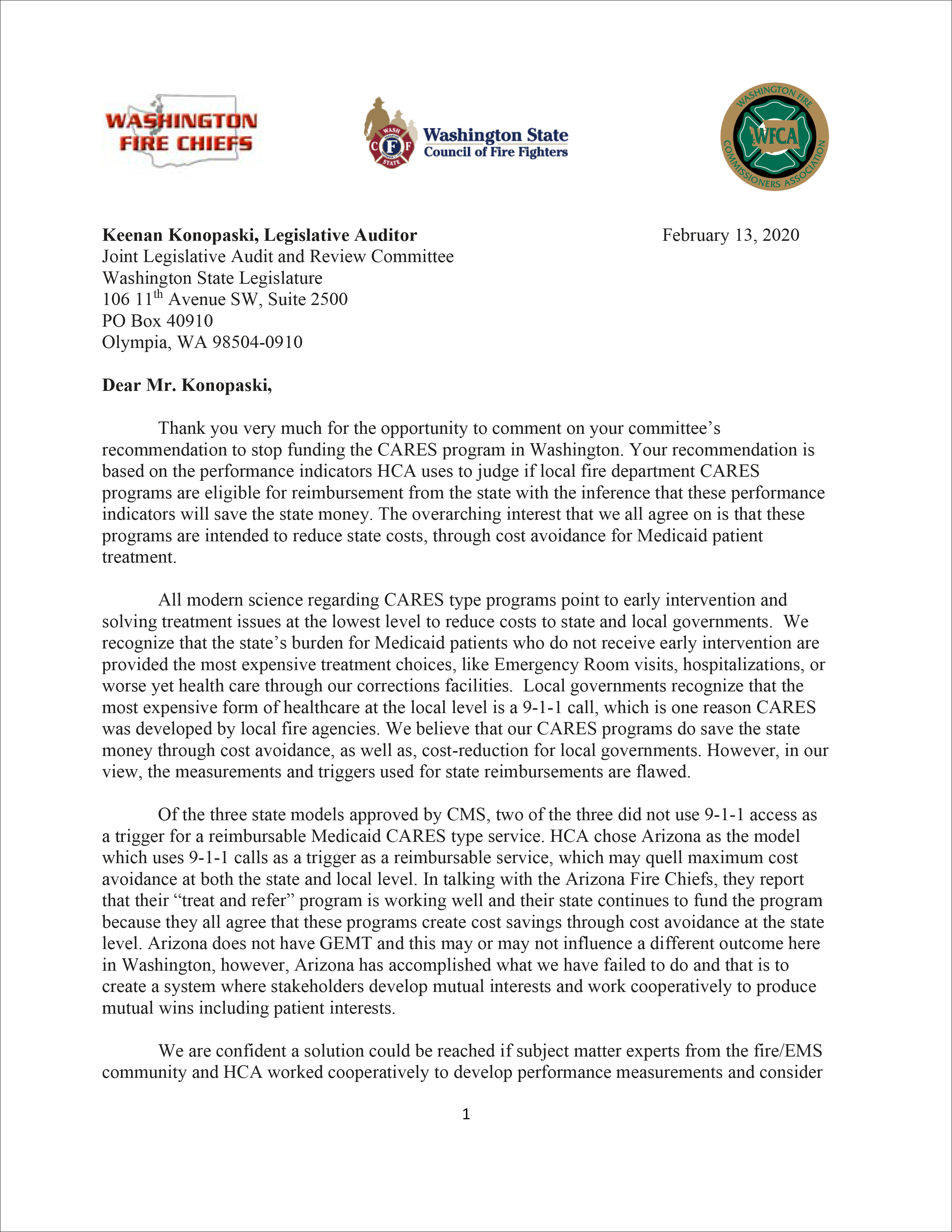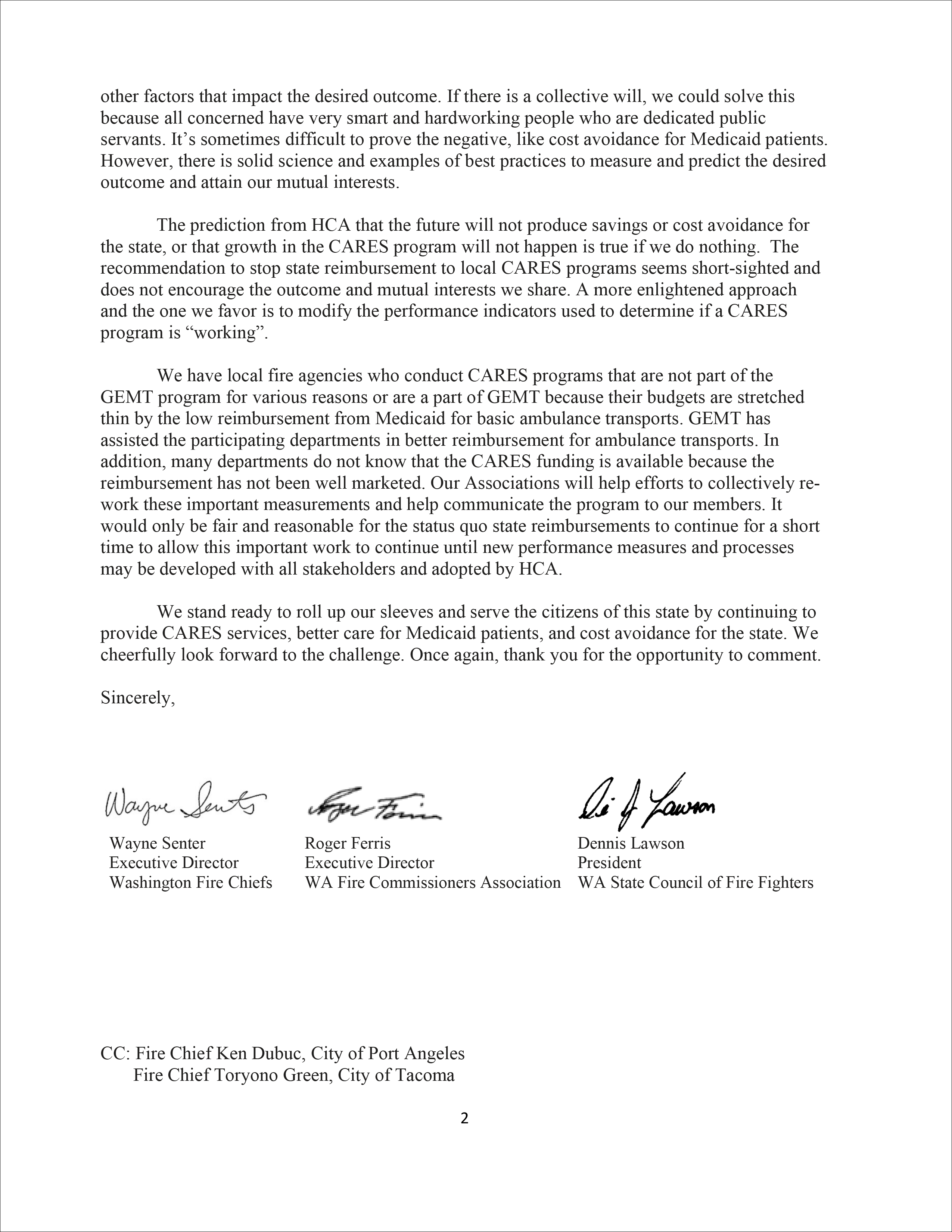Fire departments can operate CARES programs to serve local residents
Since 2013, statute has allowed fire departments to establish Community Assistance Referral and Education Services (CARES) programs. While the local programs vary, they generally aim to identify residents who use the 911 system or emergency departments for nonurgent care and connect them with other health care professionals, low-cost medication programs, and social services. Community paramedicineNonurgent care, referrals, and education provided in home or community settings., which is one approach to CARES, is part of Medicaid Transformation. An agreement with the federal government that allows the state's Health Care Authority to test new approaches to providing health coverage and care.
2017 Legislature directed Health Care Authority (HCA) to develop reimbursement standards for CARES services provided to Medicaid clients
In 2017, the Legislature directed the Health Care Authority (HCA) to develop standards to reimburse fire departments for health care services they provide to Medicaid clients through a CARES program. The law allows HCA to determine which services it will reimburse.
The HCA met with stakeholders and reviewed Medicaid reimbursement standards for similar programs in other states. Using Arizona as a model, HCA developed standards it calls "treat and refer," which took effect on July 1, 2019. The reimbursement is limited to services provided to clients who call 911Or similar emergency dispatch number. and whose condition does not require ambulance transport to an emergency department. Such services may be reimbursed at the basic life supportA level of care that justifies use of ambulance transportation but requires only basic medical treatment skills from the ambulance crew. rate through a mix of state and federal dollars.
Law directs JLARC to recommend repealing the reimbursement standards if they do not result in cost savings for the state
The 2017 Legislature also directed JLARC staff to review the cost-effectiveness of the program (E2SHB 1358, Ch. 273, Laws of 2017). If the reimbursement standards do not result in savings for the state’s Medicaid program, the Legislature directed JLARC to recommend that the reimbursements be repealed. The statute that permits CARES programs would not be affected by the repeal of the Medicaid reimbursement.
HCA’s reimbursement standards overlap with a previously established federally funded program and are unlikely to result in additional cost savings for the state
The reimbursement standards are unlikely to result in savings to the state’s Medicaid program for the reasons described below. Further evaluation of the effect of the reimbursements (e.g. actuarial analysis) is unlikely to conclude otherwise.
Many fire departments are partially compensated for treat and refer services under a separate program that is paid from federal funds
This program, known as Ground Emergency Medical Transportation (GEMT), is administered by HCA and pays for at least 50% of a department’s costs that are not reimbursed by other sources. Unlike CARES, this program is paid entirely from federal funds. HCA acknowledges that the CARES reimbursement standards provide little additional funding to the fire departments compared to the amount they would receive under GEMT.
Achieving cost savings to the state’s Medicaid program would require growth in CARES programs, but few fire departments are expected to participate
Before the standards took effect, some fire departments had already provided CARES programs at their own cost. In order to achieve new savings to the state Medicaid program, CARES programs and services would need to:
- Result in savings (e.g. avoided emergency department visits) that exceed the total
cost to reimburse participating fire departments. These savings must be the result
of CARES programs rather than GEMT or other factors.
- HCA has estimated that the CARES reimbursement standards will increase combined state and federal Medicaid expenditures by $3.8 million in fiscal year 2019. The portion of these expenditures that will be covered by the state depends on client eligibility and can range from zero to 50 percent. Federal funding for GEMT was not included in the estimated expenditures.
- Grow beyond the level that existed when the standards took effect. This could
include both new programs and an expansion of existing programs.
- As of December 16, 2019, six fire departments had enrolled to receive reimbursement for CARES services. These departments state that the additional funding from CARES reimbursement, while minimal, is important to them. Due to the existence of GEMT, HCA does not expect participation in CARES reimbursement to increase significantly.
Legislative Auditor Recommendation
Because the Health Care Authority's (HCA's) current approach to Medicaid reimbursement for CARES is unlikely to yield cost savings, the Legislature should consider repealing or revising the statutory direction for reimbursement.
- If cost savings to the state are the only consideration, the Legislature should repeal the CARES reimbursement standards. However, there may be other factors to consider, such as providing funding to local fire departments.
- If the Legislature wants to increase the likelihood for cost savings to the state, it could direct HCA to create standards that do not overlap with other programs in order to provide more incentive for fire department participation and emergency room avoidance.
The Health Care Authority and the Washington Fire Chiefs partially concur with the recommendation. View the Legislative Auditor's response to agency comments. You can find additional information on the Recommendations tab.
Committee Addendum
The Committee notes that the Legislative Auditor concluded that the reimbursement approach currently used by HCA for CARES is unlikely to produce new savings to the state’s Medicaid program as envisioned by the Legislature. Both HCA and the Fire Chiefs request that the Legislature do not repeal CARES reimbursement, citing other benefits such as financial assistance to fire departments.
The Committee believes that if the CARES reimbursement is maintained in law, the reimbursement approach should be re-designed. The Committee asks HCA to prepare options for how it could change the reimbursement process both to be more efficient and to improve the likelihood it will generate new savings or more benefits to fire departments. These options will help inform the Legislature as it decides whether to retain the underlying legislation. The Committee requests that HCA report options to JLARC and the appropriate policy committees of the legislature in advance of the 2021 legislative session.
Committee Action to Distribute Report
On June 3, 2020 this report was approved for distribution by the Joint Legislative Audit and Review Committee. Action to distribute this report does not imply the Committee agrees or disagrees with Legislative Auditor recommendations.











